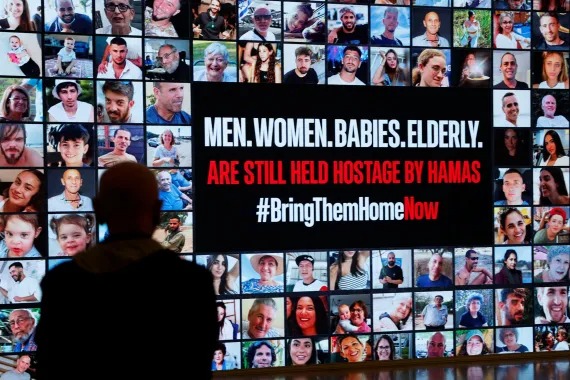Prime Minister Benjamin Netanyahu has sealed a controversial deal with Hamas, supported by his far-right coalition partners. The agreement, brokered with the mediation of Qatar, has ignited a heated debate within the Israeli political landscape, with concerns raised about the perceived concessions granted to the Palestinian group.
Far-Right Criticism and Deep Divisions
Netanyahu’s pact with Hamas, approved by his cabinet on Wednesday, faced fierce criticism from hardline members of the government. The Prime Minister garnered support from his far-right coalition partners, crucial for maintaining his political stronghold. However, dissenting voices, including Minister for National Security Itamar Ben-Gvir, condemned the move as “great harm” and warned of long-lasting consequences.
Ben-Gvir, a vocal opponent, expressed his reservations, stating that the truce played into the hands of Hamas, allowing them time to regroup and rearm. Drawing parallels to a 2011 deal that saw the release of over 1,000 Palestinian prisoners in exchange for Israeli soldier Gilad Shalit, Ben-Gvir argued that Israel was repeating past mistakes, risking the safety and security of its citizens.
Political Fractures and Unanswered Questions
The decision to approve the truce exposed deep fractures within the Israeli government, with lawmakers grappling with the implications of the deal. While some emphasized the importance of sending a message of unity, critics like Ben-Gvir remained steadfast in their opposition, asserting that the decision would cause “great harm for generations.”
Lawmakers sought answers from Israel’s military and intelligence establishment, attempting to address concerns that a pause in the conflict could compromise the momentum gained through a month of relentless strikes on Gaza. President Isaac Herzog, acknowledging the reservations within the government, threw his weight behind the deal, citing a moral and ethical duty to secure the freedom of hostages.
Security Concerns and Legal Battles
Hamas’s October 7 attack, resulting in casualties and abductions, fueled Israel’s resolve to eliminate the group. Despite vows to ensure the security of the nation, the truce decision faced criticism for potential security threats. Regional Cooperation Minister David Amsalem, a member of Netanyahu’s Likud Party, labeled it a “huge failure” and emphasized the imperative of bringing back the abducted individuals.
As the deal underwent legal scrutiny, Israel’s high court rejected a petition claiming that it posed a threat to national security. The petition argued that releasing some captives while not all violated the right to equality. The government-approved deal faced a 24-hour window for the Israeli public to register legal objections, adding another layer of complexity to an already contentious agreement.
Netanyahu’s gamble for a truce with Hamas has ignited a political firestorm in Israel, highlighting deep divisions and sparking debates over security, unity, and the nation’s future. As the dust settles, the repercussions of this controversial deal will undoubtedly reverberate through the corridors of power, shaping the country’s political landscape for the days to come.
















